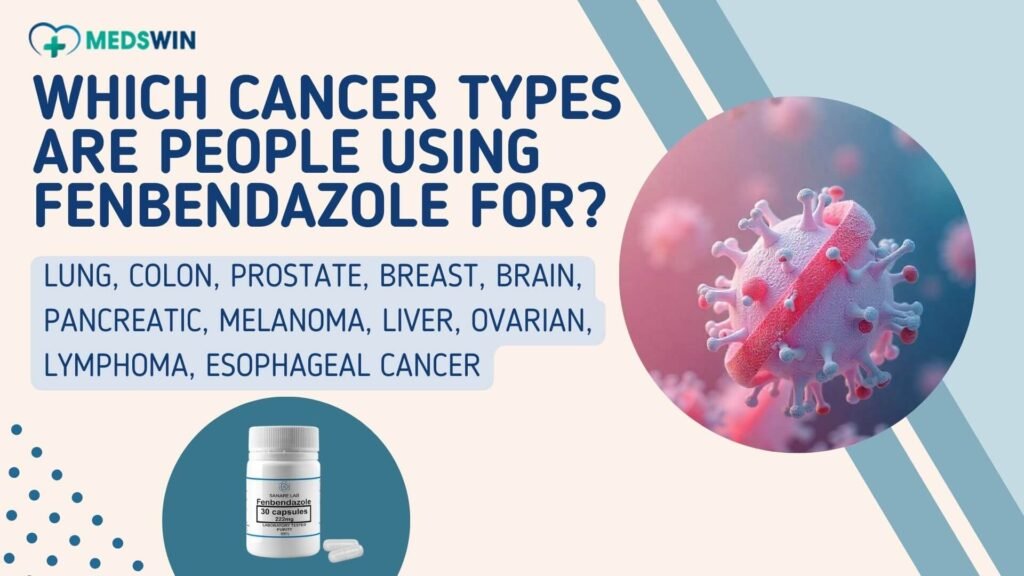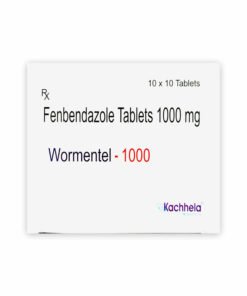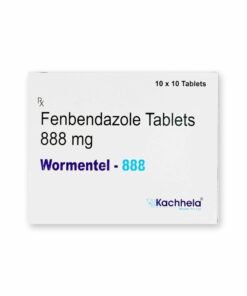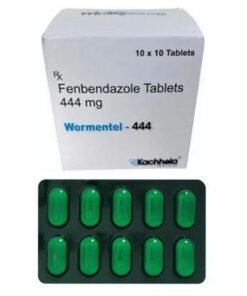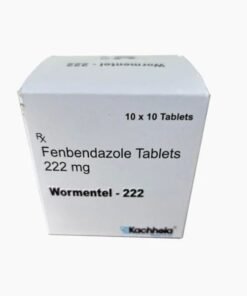Health
Which Cancer Types Are People Using Fenbendazole For?
Introduction
In recent years, Fenbendazole, a common deworming medication for animals, has sparked massive interest among cancer patients searching for alternative therapies. This movement largely began with Joe Tippens, who claimed Fenbendazole played a critical role in his unexpected recovery from terminal lung cancer.
Although Fenbendazole for cancer is not FDA-approved, anecdotal success stories have flooded the internet, making it a buzzword in alternative cancer treatment communities. But which types of cancer are people actually using Fenbendazole for?
In this article, we’ll explore how Fenbendazole is believed to work, the most common cancer types associated with its use, real-world experiences, and important cautions.
What is Fenbendazole?
Origins: From Dewormer to Cancer Buzz
Fenbendazole is a broad-spectrum antiparasitic used primarily in veterinary medicine to treat intestinal worms in dogs and livestock. It has been safely used for decades with minimal side effects in animals.
The surprising twist came when some researchers noticed that Fenbendazole may interfere with cancer cell growth due to its ability to disrupt cellular microtubules — structures essential for cell division.
How Fenbendazole Might Work Against Cancer Cells
At the cellular level, Fenbendazole is believed to:
-
Disrupt microtubule formation (essential for cancer cell replication)
-
Induce apoptosis (programmed cell death)
-
Potentially inhibits glucose metabolism in cancer cells
While animal studies and lab experiments suggest some anti-cancer properties, human clinical trials are still lacking.
Current Scientific Research and Studies
While several preclinical studies have demonstrated Fenbendazole’s anticancer effects in mice and cell cultures, no large-scale human trials confirm its effectiveness yet. Scientists are cautiously optimistic but emphasize the need for more rigorous testing.
Order the Fenbendazole!
Order the Fenbendazole!
Why People Are Exploring Fenbendazole for Cancer
Joe Tippens’ Story: Hope for Late-Stage Cancer
In 2016, Joe Tippens was diagnosed with small-cell lung cancer and given just three months to live. After incorporating Fenbendazole into his regimen (alongside traditional treatments), he reported a full remission. His story went viral, leading to massive public curiosity about Fenbendazole for cancer.
The Role of Microtubule Disruption in Cancer Therapy
Traditional chemotherapy drugs like Taxol also target microtubules. Fenbendazole, being a low-cost alternative with fewer side effects (in animals), captured the imagination of those battling aggressive cancers.
Off-Label Use: Risks and Considerations
Since Fenbendazole is not officially approved for human cancer treatment, patients experimenting with it do so off-label and at their own risk. Dosage, purity, and long-term effects are areas of serious concern.
Which Cancer Types Are People Using Fenbendazole For?
Fenbendazole is being discussed across various cancer communities. Here’s a breakdown by cancer type:
1. Lung Cancer (Small-Cell and Non-Small Cell)
-
Joe Tippens’ small-cell lung cancer story remains the most famous case tied to Fenbendazole.
-
Many others with non-small cell lung cancer have also reported experimenting with the protocol.
-
Online support groups discuss combining Fenbendazole with chemotherapy, targeted therapy, and immunotherapy.
2. Colon and Rectal Cancers
-
Patients with colorectal cancer have shown rising interest, particularly when traditional therapies fail.
-
Fenbendazole’s low toxicity is attractive to those with weakened immune systems.
3. Prostate Cancer
-
Some men battling advanced prostate cancer have turned to Fenbendazole hoping for additional support.
-
In prostate forums, discussions often focus on blending Fenbendazole with hormone therapy or radiation.
4. Brain Cancers (Glioblastoma)
-
Glioblastoma multiforme (GBM), an aggressive brain tumor, has seen interest due to the urgent need for new treatments.
-
Though evidence is anecdotal, some believe Fenbendazole crosses the blood-brain barrier, offering hope.
5. Breast Cancer
-
Fenbendazole is sometimes explored by women with triple-negative breast cancer (TNBC) or metastatic breast cancer, particularly when traditional treatments offer limited success.
6. Ovarian Cancer
-
Ovarian cancer patients facing relapse after chemotherapy have also looked into Fenbendazole as part of a broader cancer management strategy.
7. Pancreatic Cancer
-
Given pancreatic cancer’s notoriously poor prognosis, Fenbendazole appears on some alternative medicine lists — though again, evidence is purely anecdotal.
📊 Table: Cancer Types and Fenbendazole Interest
| Cancer Type | Community Interest | Notes |
|---|---|---|
| Lung Cancer | Very High | Joe Tippens’ success story |
| Colon & Rectal Cancer | High | Rising after late-stage diagnosis |
| Prostate Cancer | Medium-High | Often alongside hormone therapy |
| Brain Cancer (Glioblastoma) | Medium | Some hopeful user stories |
| Breast Cancer | Medium | Especially in triple-negative cases |
| Ovarian Cancer | Low-Medium | Limited anecdotal reports |
| Pancreatic Cancer | Low | Desperation drives exploration |
How Patients Are Combining Fenbendazole with Conventional Treatments
Chemotherapy + Fenbendazole
Some users take Fenbendazole alongside chemo, hoping for a synergistic effect. Caution: always consult your oncologist.
Radiation Therapy + Fenbendazole
Radiation patients have explored Fenbendazole for post-radiation tumor control.
Immunotherapy + Fenbendazole
There’s growing discussion about using Fenbendazole while receiving immunotherapies like Keytruda or Opdivo, aiming to enhance immune response.
Key Things to Know Before Considering Fenbendazole
Safety Concerns and Potential Side Effects
While Fenbendazole is well-tolerated in dogs, human reactions are less well-studied. Reported issues include:
-
Mild liver enzyme elevation
-
Gastrointestinal upset
-
Possible allergic reactions
Importance of Doctor Consultation
Always involve a qualified healthcare provider when exploring any off-label treatment, especially when already undergoing cancer therapy.
Dosage Information Circulating Online
Most people loosely follow Joe Tippens’ original regimen:
-
Fenbendazole 222 mg once daily (five days on, two days off)
-
Vitamin E, Curcumin, and CBD oil supplements
However, self-dosing is risky, and this method is not scientifically validated.
FAQs About Fenbendazole and Cancer
Is Fenbendazole FDA-approved for cancer treatment?
No, it’s only approved for veterinary use. Human use against cancer remains experimental.
Are there clinical studies proving Fenbendazole cures cancer?
Not yet. Most evidence is anecdotal or based on lab studies, not human trials.
Can I take Fenbendazole with chemotherapy?
Some patients do, but it must be under strict medical supervision to avoid drug interactions.
What cancers show the most anecdotal success?
Lung cancer (especially small-cell) and colorectal cancer appear most frequently in success stories.
Is Fenbendazole safe for long-term use?
Unknown — human studies on long-term use are extremely limited.
Final Thoughts
The excitement around Fenbendazole for cancer treatment is understandable — it’s low-cost, accessible, and there are some truly inspirational patient stories. However, it’s vital to remember that anecdotes are not scientific proof.
If you’re considering Fenbendazole as part of your cancer journey, do so thoughtfully, involve your doctors, and stay informed about emerging research.
While Fenbendazole and cancer remain an unproven pairing for now, the growing interest could pave the way for new clinical trials and, hopefully, new hope for many.



